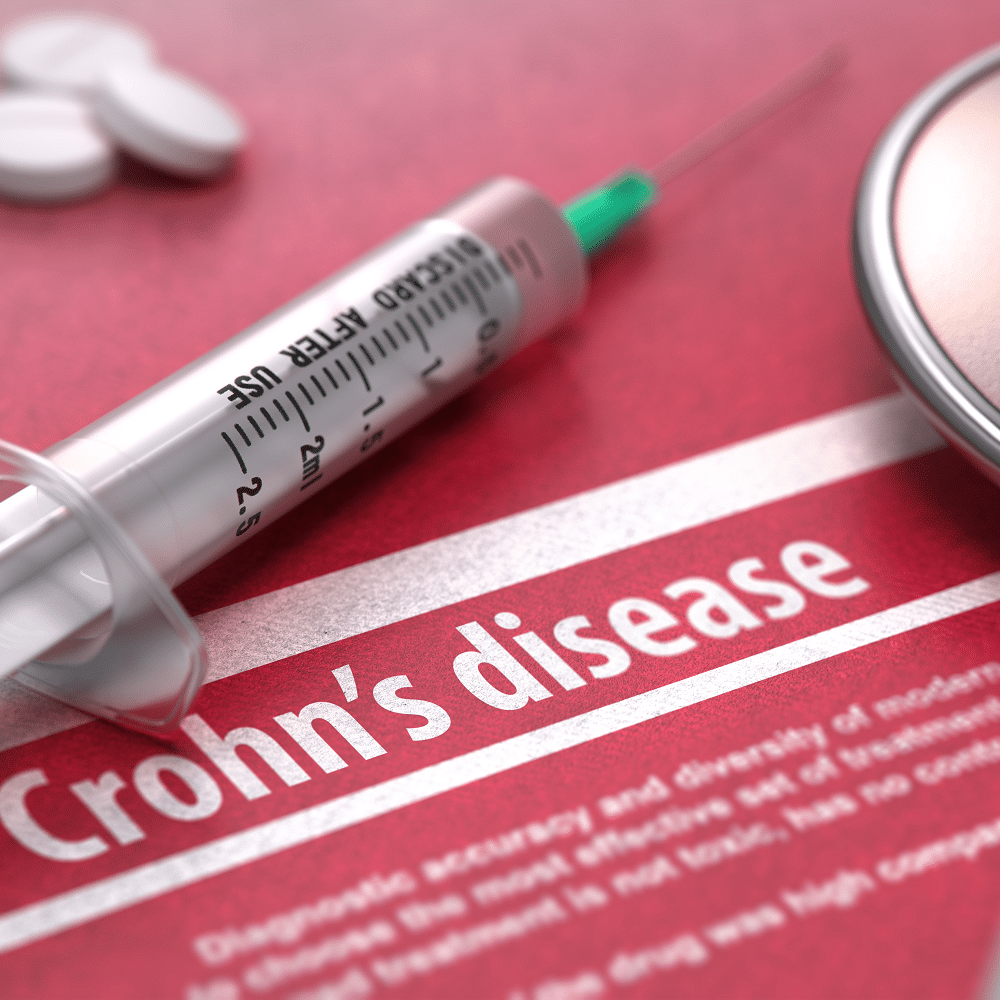About 3 million people in the U.S. live with inflammatory bowel disease. This chronic condition develops when immune cells in the gut overreact to a perceived threat to the body. It’s thought that the microbiome—the bacteria, fungi, protozoa, and viruses that live in the intestines—plays a role in this process. Whatever the cause, this immune reaction can damage the cells that line the gastrointestinal tract.
One major type of inflammatory bowel disease, called Crohn’s disease, can occur anywhere in the gastrointestinal tract, though it most often affects the small intestine and colon. Scientists have been studying the relationship between the gut microbiome and inflammation in Crohn’s disease, with a goal of developing targeted treatments.
Researchers led by Dr. Thaddeus Stappenbeck, formerly from Washington University in St. Louis and now at the Cleveland Clinic, examined damaged intestinal tissue in a mouse model of Crohn’s disease. Their work was funded in part by NIH’s National Center for Complementary and Integrative Health (NCCIH), National Institute of Diabetes and Digestive and Kidney Diseases (NIDDK), and National Institute of Allergy and Infectious Diseases (NIAID). Results were published on March 12, 2021, in Science.
The team gave antibiotics to mice with damaged intestinal tissue. Antibiotics are commonly given to people during a flare-up of Crohn’s disease to reduce complications that involve infection. However, such drugs can disturb the normal makeup of the microbiome.
The researchers found that the antibiotics impaired wound healing in the intestines. By about a week after the antibiotic treatments, fungi were found living in the intestinal wounds. When the mice received an anti-fungal drug, the wounds started to heal.
Genetic analysis showed that one fungus, a type of yeast called Debaryomyces hansenii, dominated in the wounds of mice given antibiotics. It was not found in nearby areas of healthy tissue. It also wasn’t found in the healing wounds of mice not given antibiotics.
To see if the fungus impaired healing, the researchers fed it to other mice with intestinal wounds, without prior antibiotic administration. The fungus could later be found in the wounds, and wound healing was impaired.
Further work revealed that D. hansenii caused the immune system to boost the production of a signalling molecule called CCL5. When fed to mice that lacked CCL5, the fungus didn’t impair wound healing. Blocking CCL5 with drugs in normal mice had the same beneficial effect.
Finally, the team looked for D. hansenii in tissue samples taken from seven people with Crohn’s disease and 10 without the condition. They found the yeast in all of the people with Crohn’s disease. Substantially more fungus was living within damaged tissue of the intestine than in undamaged regions. In contrast, D. hansenii was found in only one of the people without the condition. This enrichment of D. hansenii was also observed in additional groups of people with Crohn’s disease.
D. hansenii isn’t a common component of the healthy human gut microbiome. It can live in extreme environments, and is also used in the food industry. However, it’s not known how its presence in the diet might affect people with Crohn’s disease.
“The significance of our study is that we define a clear link between a specific gut microbe and wound healing response,” Stappenbeck says. “Targeting this infection may be a viable approach to treat the disease or develop diet-based prevention strategies.”




